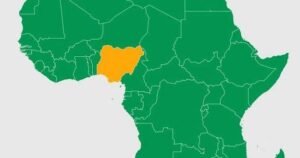
He said that out of the country’s 1,978 entry points, only 84 are officially manned, leaving 1,894 illegal routes vulnerable to use by criminal elements.
Anka made the revelation during the inauguration of the committee on Tuesday at the National Assembly Abuja.
He described the situation as “disturbing” and a major threat to national security, economic growth and the country’s territorial integrity.
The lawmaker noted that Nigeria’s vast borders stretching over 36,450 kilometres of land and sea across 923,768 square kilometres make effective monitoring difficult, particularly with limited resources and challenging terrain.
According to him, several factors have worsened border insecurity, including inadequate funding for security agencies, shortage of personnel, obsolete surveillance equipment, and corruption among some border officials.
“Despite significant government expenditure, which has exceeded N9trn over the past years, we are yet to attain commensurate gains in our security landscape,” Anka lamented.
He identified illegal arms smuggling, human trafficking, and drug trafficking as major cross-border crimes that continue to undermine Nigeria’s internal stability and public safety.
While commending the efforts of key border security agencies such as the Nigeria Immigration Service (NIS) and the Nigeria Customs Service (NCS), Anka emphasised the need for greater synergy among other complementary bodies, including the Nigerian Navy, NDLEA, Police, and the Nigerian Army.
The Speaker of the House of Representatives, Abbas Tajudeen, expressed commitment of the House in ensuring that Nigerians live peacefully and securely anywhere in the country, regardless of their ethnicity or religion.
Chief of Army Staff, Lieutenant-General Waidi Shaibu, who spoke through the Chief of Military Intelligence, Maj. Gen. Aliyu Idris, said although the Army remains a key player in defending Nigeria’s territorial integrity, it has continued to face major operational challenges, including inadequate manpower, outdated intelligence equipment, and insufficient combat enablers.
The Comptroller General of the Nigeria Immigration Service (NIS), Kemi Nandap, called for stronger regional collaboration and greater investment in border infrastructure and personnel welfare to effectively secure Nigeria’s borders and address emerging cross-border threats.
She said that despite the NIS’s commitment to effective border management, the agency has also continued to grapple with inadequate infrastructure, overstretched manpower, and the growing sophistication of transnational criminal networks.





